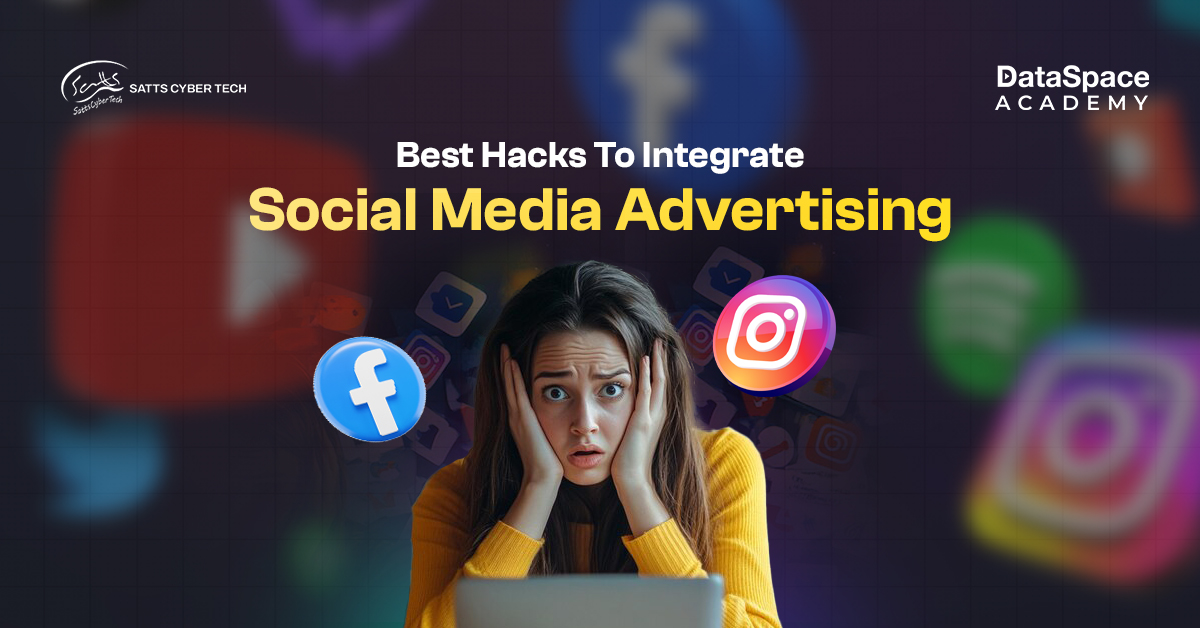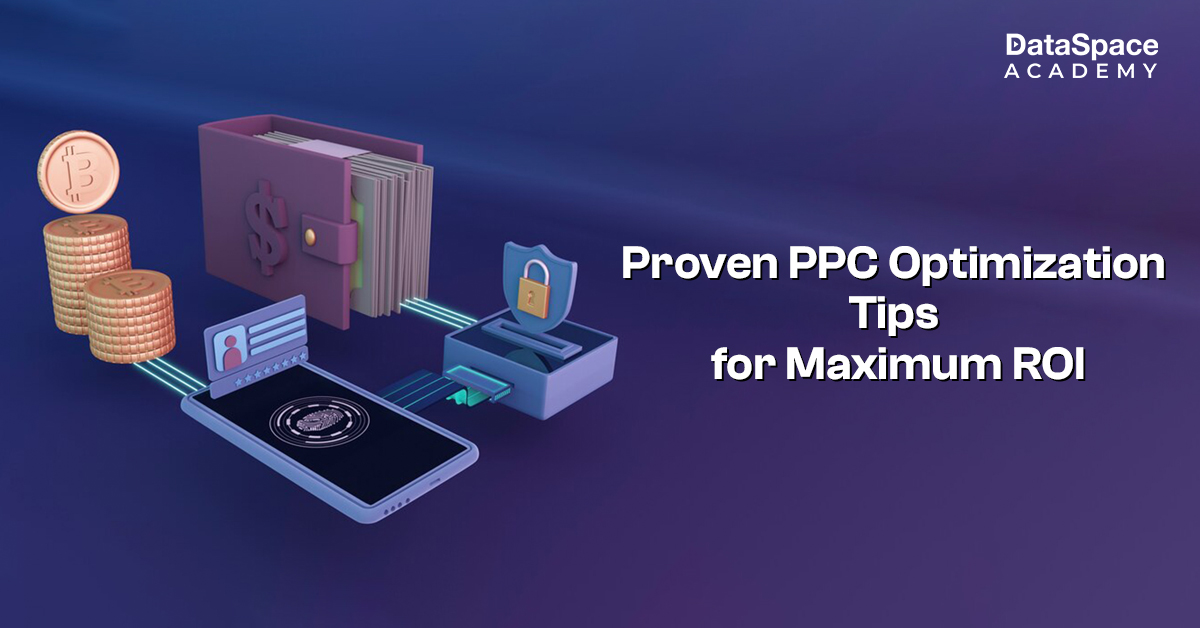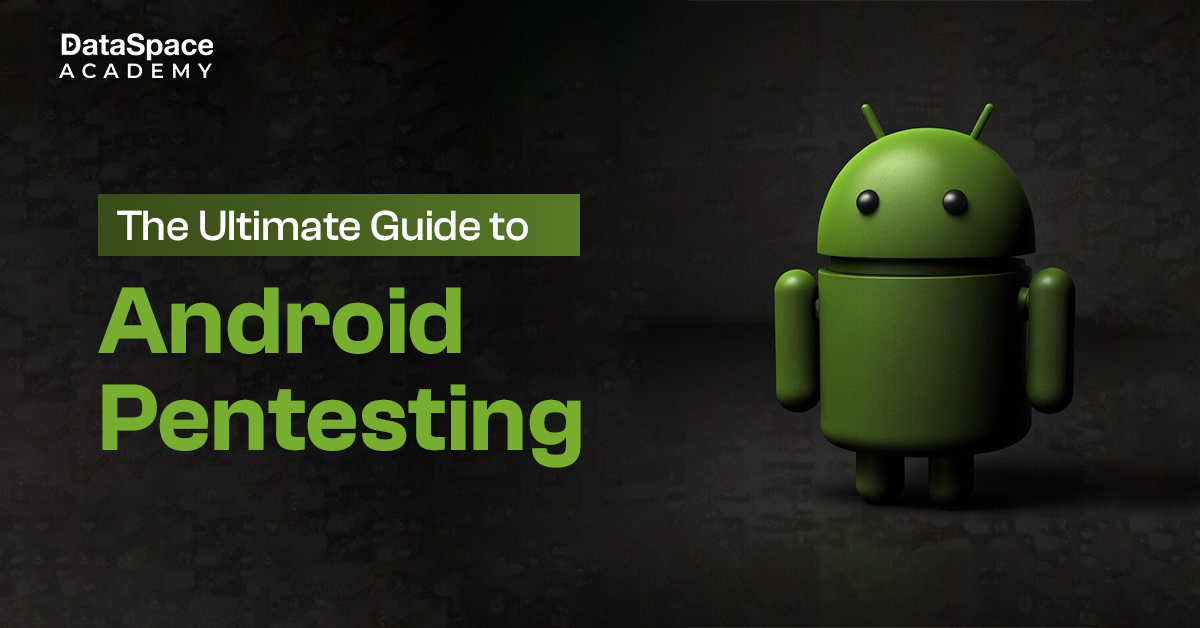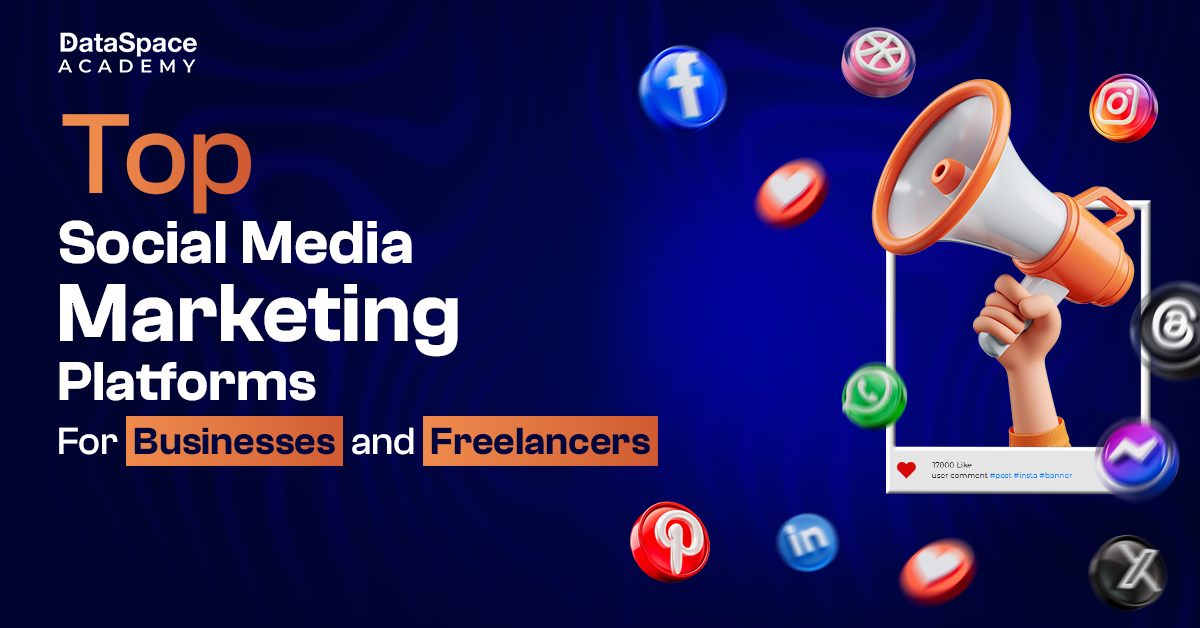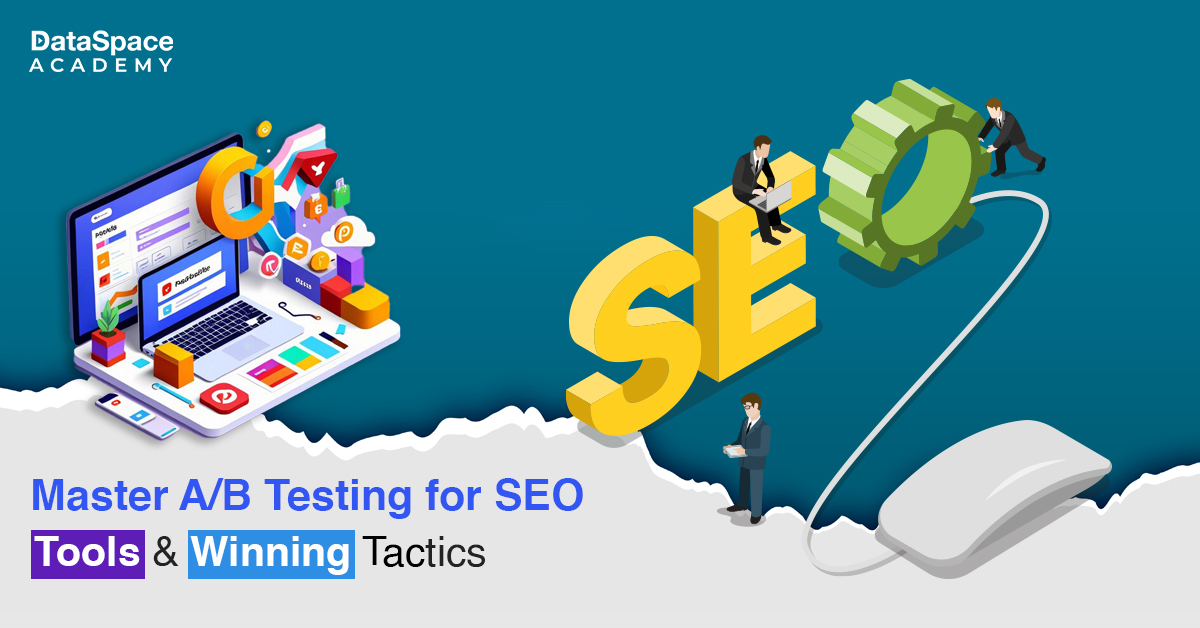Social Media Marketing Strategy: Top 5 Tips to Ace Social Media
Last Updated : 20 Aug, 2024
 63.6K
63.6K

Introduction
Did you know that a whopping 93% of marketers say that social media is the secret sauce behind their business success? (Source: LinkedIn)
If this stat doesn’t catch your attention, what else will?!?
With billions of people scrolling through their feeds every day, it’s clear that if your brand isn’t on social media, you’re missing out on a massive opportunity. But let’s be real—just being on social media isn’t going to cut it. You need a killer social media marketing strategy to stand out, engage, and convert. Whether you’re looking to boost brand awareness or drive sales, nailing your social media promotion strategy is the name of the game. Let’s dive into how you can do just that!
The Importance of Social Media for Businesses
Social media has transformed from a mere communication tool into a powerful business platform. Today, social media is where brands and customers connect, interact, and build relationships. According to recent statistics, more than 90% of marketers claimed that social media increased their exposure, while 75% reported an increase in traffic from their social efforts.
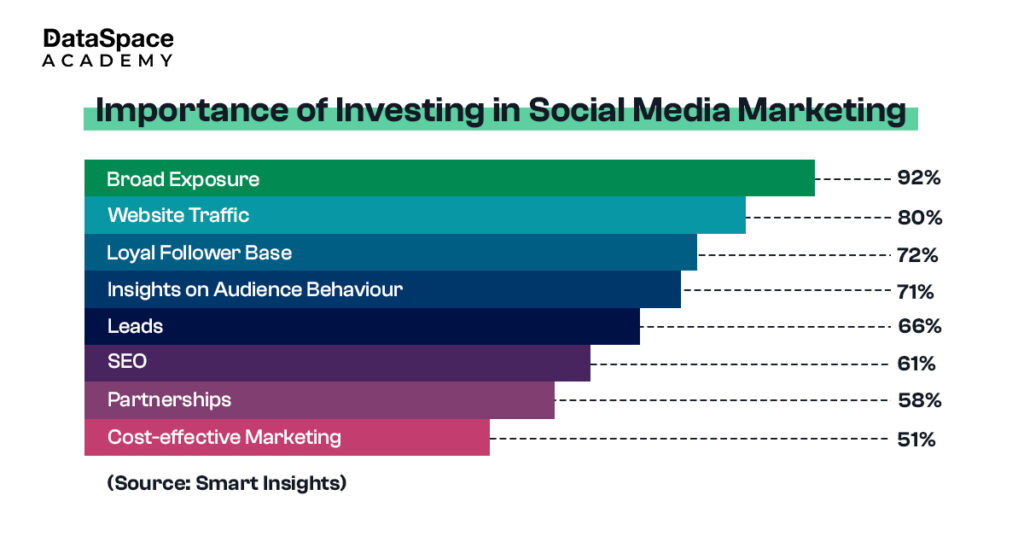
Why has social media become such an essential tool for businesses?
- Audience Reach: With over 4.9 billion active users worldwide, popular social media platforms offer an unparalleled opportunity to reach a broad and diverse audience.
- Cost-Effective Marketing: Compared to traditional marketing methods, social media offers a budget-friendly way to promote products and services, making it accessible even for small businesses.
- Enhanced Customer Engagement: Social media allows businesses to interact with their audience in real-time, fostering stronger customer relationships and improving customer service.
- Brand Authority: Consistent and thoughtful social media activity can establish a brand as an industry leader, building customer trust and credibility.
These benefits underscore why social media for business is not just an option but a necessity for brands looking to thrive and flourish.
Top Social Media Marketing Platforms
Choosing the right platform is the foundation of a successful marketing strategy using social media. Not all platforms are the same; each one comes with its own distinct audience and set of features. Here’s a look at some of the best social media platforms for business:
1. Facebook
- Audience: With over 2.9 billion monthly active users, Facebook is the king of social media. Its diverse user base makes it ideal for businesses targeting a wide range of demographics.
- Features: Facebook offers powerful advertising tools, including detailed targeting options, which allow businesses to reach specific audiences based on location, interests, behavior, and more.
2. Instagram
- Audience: Instagram is particularly popular among younger audiences; with gen z and millennials combined, 87% of the platform users are aged between 18-45. Designed for visual storytelling, Instagram is ideal for brands with a strong visual identity.
- Features: Instagram’s features like Stories, Reels, and Shopping make it a versatile platform for both brand building and direct sales.
3. LinkedIn
- Audience: LinkedIn is the go-to platform for B2B businesses and professionals. It’s particularly effective for networking, B2B marketing, and recruitment.
- Features: LinkedIn offers advertising opportunities that are ideal for reaching decision-makers and industry leaders.
4. Twitter
- Audience: Twitter is known for its real-time updates and is widely used by people who want to stay on top of the latest trends. It’s a great platform for brands to engage with their audience through conversation and timely content.
- Features: Twitter’s character limit forces brands to be concise and impactful, which can lead to highly engaging content.
5. YouTube
- Audience: Bustling with over 2 billion logged-in monthly users, YouTube is the second largest search engine after Google. The platform appeals to a wide range of demographics, making it ideal for businesses looking to share in-depth content, tutorials, or product demonstrations.
- Features: YouTube allows brands to create and share video content that can be easily discovered through search and recommended videos. The platform’s monetisation options and analytics tools also provide valuable insights into video performance and audience engagement.
Best Social Media Marketing Strategies
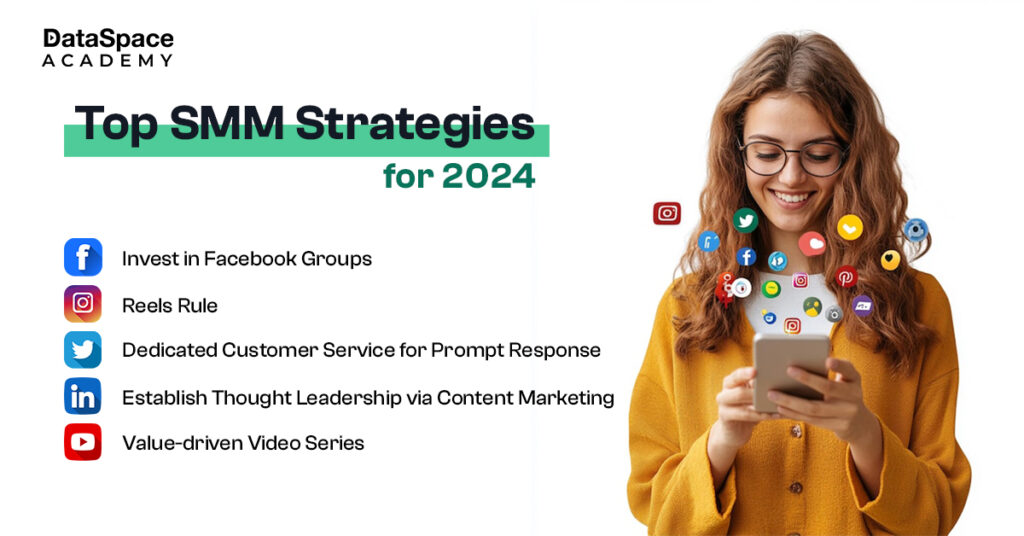
Here is a brief on the best or most trending social media content strategy for each popular SMM platform.
1. Facebook: Mastering Facebook Groups
- Strategy: Facebook Groups have become one of the most effective tools for building a community around your brand. Unlike traditional Pages, Groups foster more organic interaction and create a sense of belonging among members. Brands can create or join niche-specific Groups where they can share valuable content, engage in discussions, and gather insights directly from their audience.
- How It Works: Use Groups to conduct polls, share exclusive content, and offer sneak peeks of upcoming products or services. This fosters deeper engagement and builds brand loyalty as customers feel like they’re part of a VIP community.
2. Instagram: Participate in Trending Reels
- Strategy: Instagram Reels, the short-form video feature, has become a powerhouse for boosting engagement and reach. The platform’s algorithm heavily favours Reels, often displaying them to a broad audience – and even to users who don’t follow your account. This makes Reels an excellent way to attract new followers and keep your current audience engaged with fresh (read trending), entertaining content.
- How It Works: Create Reels that align with trending topics or challenges while staying true to your brand’s voice. You can showcase products, share behind-the-scenes footage, or offer quick tips. Consistency is key—post Reels regularly to keep the momentum going.
3. Twitter: Real-Time Customer Service
- Strategy: Twitter has evolved into a powerful platform for real-time customer service. Brands that promptly respond to customer inquiries, complaints, and feedback can turn negative experiences into positive ones and build a strong, trustworthy reputation.
- How It Works: Set up a dedicated customer service handle or integrate customer support into your main Twitter account. Use Twitter’s advanced search feature to monitor mentions of your brand, even if you’re not directly tagged, and respond quickly to address any issues. Acknowledge both positive and negative feedback publicly, and take more complex issues to direct messages for resolution.
4. LinkedIn: Thought Leadership Through Content Marketing
- Strategy: LinkedIn is the go-to platform for B2B marketing, and establishing thought leadership here can significantly boost your brand’s credibility. Sharing insightful content, such as industry trends, expert opinions, and detailed case studies, can position your brand as an authority in your field.
- How It Works: Regularly publish articles, whitepapers, and infographics that provide value to your target audience. Engage with your followers by initiating discussions around current industry trends and encouraging them to share their insights. Don’t forget to participate in LinkedIn Groups where fellow industry professionals interact.
5. YouTube: Creating Value-Driven Video Series
- Strategy: YouTube is all about long-form content, and creating a value-driven video series is a great way to keep your audience coming back for more. A series allows you to delve deep into topics of interest to your audience, providing them with consistent value over time.
- How It Works: Identify key areas where your audience needs guidance, entertainment, or education – and develop a series of videos that address these needs. Each video should be part of a larger narrative, encouraging viewers to subscribe and return for the next installment. Additionally, use SEO strategies to optimise your video titles, descriptions, and tags to ensure your content is discoverable.
Mistakes to Avoid on Social Media
Even with the best strategies in place, it’s easy to fall into common pitfalls that can undermine your efforts. Watch out for these common errors:
1. Over-Promotion
- Constant promotion on social media channels could be a big turn-off. Aim for a balanced approach by mixing promotional content with educational and entertaining posts.
2. Ignoring Negative Feedback
- Negative comments or reviews should not be ignored. Address them with a professional and humble tone. It’s best suggested to use them as an opportunity to show your brand’s commitment to customer satisfaction.
3. Inconsistent Posting
- Irregular posting can lead to decreased engagement. Develop a content calendar to ensure consistent and timely posting across all platforms.
4. Not Having a Clear Strategy
- Lack of a clear social media marketing strategy will leave you with scattered posts, dampening the efficiency of your SMM campaigns. Set clear goals, identify your target audience, and establish key performance indicators (KPIs) before kicking off your campaigns.
Conclusion
A calculated and informed SMM strategy is indispensable for businesses looking to build brand awareness, engage with customers, and drive sales. By selecting the right social media platforms for business, creating quality content, engaging with your audience, and avoiding common pitfalls, you can master the art of social media marketing. If you’re looking to sharpen your digital marketing skills, consider enrolling in a digital marketing course online. Such courses offer comprehensive insights into various aspects of digital marketing, including social media strategies. Whether you’re a beginner or a seasoned marketer, it provides you with the tools and knowledge needed to stay ahead of the curve.
 63.6K
63.6K























